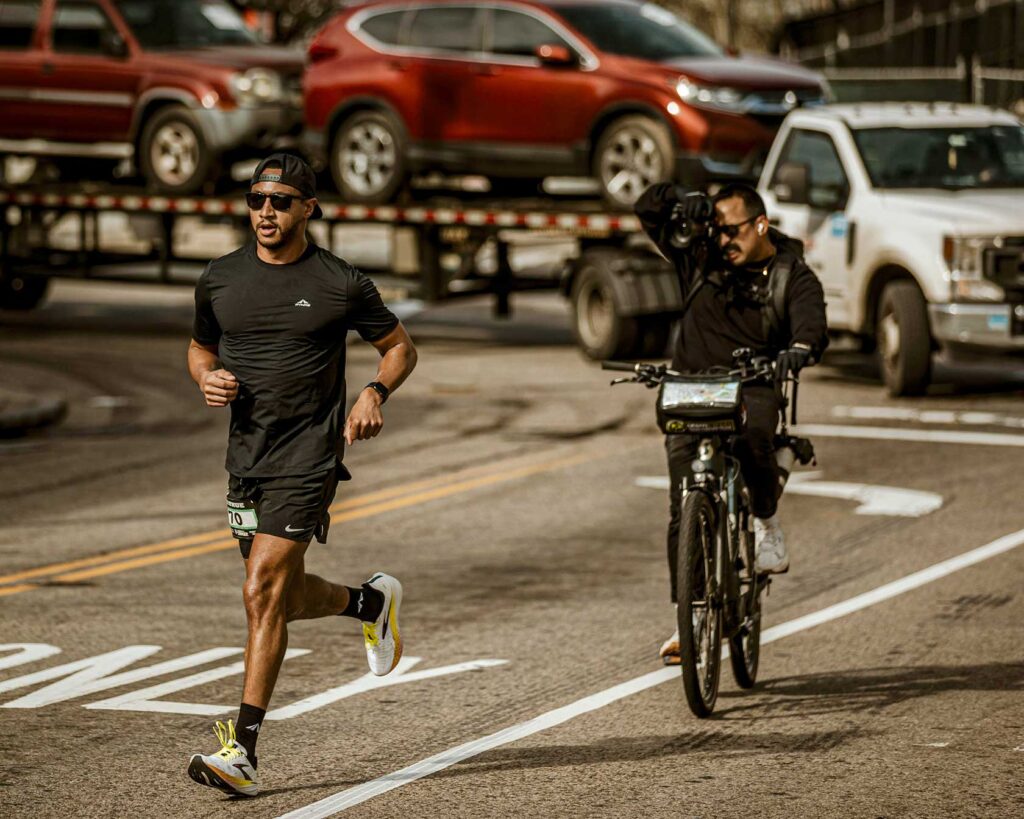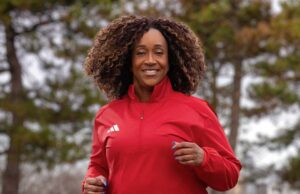For these runners, the Boston Marathon is a chance to support local causes

It was a hard move when Tanisha Tate moved back to Boston to care for her parents who were facing health issues.
Tate, a Dorchester resident, struggled with anxiety and depression. Within six months, she gained over 100 pounds.
Staff at the Codman Square Health Center wrote her a prescription for exercise — part of the center’s partnership-based effort to address a wider variety of health factors — and connected her to Healthworks Community Fitness, a nonprofit gym in then health center’s Wellness Center.
Two years later, with support from the staff of the gym, she had lost the weight and improved her health.
“It totally changed my life,” she said. “I was able to get off all the anti-depressants and anxiety medicine. I lost 100 pounds. … I just felt like it was great.”
In honor of that support, Tate, who now works as the community outreach and engagement director at Healthworks Community Fitness, is running the Boston Marathon this year as one of the race’s many charity runners, with the $12,000 she’s aiming to raise, set to be donated to the gym.
“When the executive director said they had bibs for the marathon, I thought, I would love to raise money for it and to participate, to be an inspiration for other women that, ‘you could do it,’” Tate said of her effort, which has been included in a Bank of America billboard campaign featuring charity runners in the event.
Since the marathon’s charity program launched in 1989, charity runners have been a significant part of the race’s base. Last year, charity runners made up almost 10% of the racers, logging $45.7 million for their respective organizations.
This year, Healthworks Community Fitness is one of 174 organizations that will be supported by runner-collected donations.
Reynolds Graves, another charity runner in this year’s race, is racing to support the Lenny Zakim Fund, which funds efforts related to social, economic and racial justice. Graves said he’s proud to be supporting the fund’s efforts in bridge-building and making community connections.
“I think that so many communities these days need allyship. Whether it’s the Black community or LGBTQ community or other marginalized groups, or certain religious groups, everyone needs allyship. That’s the only way any of this stuff that’s going on today that’s detrimental and harmful to these communities is going to stop,” said Graves, who runs a local public affairs, lobbying and political consulting firm.
He is aiming to raise $10,000 for the fund.
The race is an opportunity to use his platform, “in this case, 26.2 miles from Hopkinton to Boylston Street, to raise funds and to secure funds for causes that really impact people’s lives positively or change people’s lives throughout the Boston metro area,” he said.
For both Tate and Graves, the race is also a chance to show people from communities of color that running is a sport they can tackle.
“I think that is kind of where my activism with running starts, it is trying to bring this sport to others who probably would have never thought about participating in the sport of distance running,” he said.
Growing up, running wasn’t on his radar. Instead, he participated on the swim team and the golf team. It wasn’t until the mid-2010s, when his friend Sid Baptiste started Pioneers Run Crew, a local running group aimed at bringing the sport to a more diverse array of runners, that he got into distance running.
“It’s a beautiful thing to see people of color, Black people from Roxbury, Dorchester, Mattapan, meeting up at Franklin Park, or meeting up on Mass. Ave. or in the South End to go for runs,” he said.
Since taking up running, he’s already run the Boston Marathon once, alongside three other marathons, including 26.True, a local, unsanctioned marathon organized by Pioneer Run Crew, that traces its just over 26 miles largely through the city of Boston (organizers draw a contrast with the official Boston Marathon, which, despite its name, only runs within the city’s limits for about two miles).
And Tate said she’s proud to run the race representing runners — especially women — of color.
“With our community, especially Black women, we have so much on our plate personally,” she said. For Tate, participating in the race is a chance “to show that running could be part of your routine and also part of your therapy.”
That same effort is also part of her life for the rest of the year. Tate is a certified running coach for the Dorchester chapter of 261 Fearless, a woman-focused running group.
The race is a return to long-distance running for her — previously she lived in New York City, where she ran three half-marathons and a spate of 5k and 10k races, as well as qualified for the New York City Marathon twice (neither time she was actually able to run the race due to other outside factors).
She said she’s run a handful of 5k races, but this will be her first long-distance race since returning home to Boston. But the Boston Marathon has long been a goal for her.
“That’s why I was like, ‘Oh my gosh. I’ve always wanted to,’” she said. “That’s my dream to run the Boston Marathon.”







